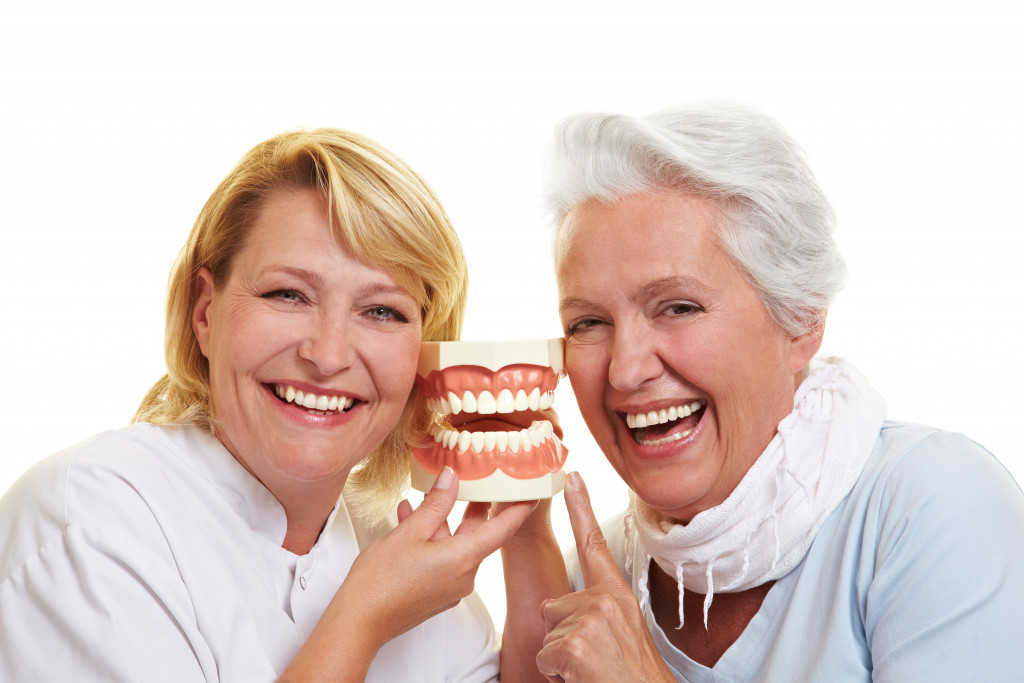• Visit your dentist regularly for check-ups and cleanings to maintain good oral health.
• Eat a healthy, balanced diet to provide your teeth with essential vitamins and minerals.
• Lifestyle changes such as quitting smoking and staying hydrated can also help protect your teeth.
• If you have any damages, your dentist can recommend a treatment plan, such as fillings, root canals, crowns, dentures, or implants.
Turning 60 is a milestone that many people look forward to. But, as you age, you must pay special attention to your oral health. While most people understand the importance of brushing and flossing daily, there are other things that you can do to ensure that your teeth and gums remain healthy for years to come.
Importance of Keeping Oral Health When Turning 60
Considered a special milestone, turning 60 means that you have a new opportunity to create better habits when it comes to your oral health. As you age, your body becomes more vulnerable to diseases and conditions that may affect your teeth and gums. This is because your salivary glands produce less saliva as you age, which can decrease the protection of your teeth and gums.
Additionally, because of maintenance medications, aging adults are more likely to experience dry mouth. This can increase your risk of tooth decay, gum disease, and other dental conditions.
Tips for Maintaining Oral Health When Turning 60
It is certainly still possible to start taking better care of your teeth and gums. Also, turning 60 does not mean letting your oral health care slip. Here are some tips for maintaining your oral health when turning 60:
Visit your Dentist Regularly
Visiting a qualified dentist at least twice a year is recommended for routine check-ups and cleanings. During these visits, they will be able to detect any potential problems early on so they can be addressed quickly before they become more serious. Additionally, they can advise on maintaining good oral health habits moving forward.
Use Fluoride Products
Fluoride helps strengthen tooth enamel and protect against cavities and other oral health issues. For those over sixty, it’s especially important to use fluoride products such as toothpaste and mouthwash regularly since enamel tends to weaken with age.
Eat Nutritious Foods
Eating nutritious foods can help keep your teeth healthy by providing essential vitamins and minerals that help improve gum health and protect against decay-causing bacteria in the mouth. Incorporate foods such as fresh fruits, vegetables, lean proteins, and whole grains into your diet as much as possible. Avoid sugary snacks that can increase the risk of tooth decay over time.

Quit Smoking
Smoking increases the risk of periodontal disease, a major cause of tooth loss in older adults. Quitting smoking now will reduce your chances of developing gum disease and improve overall health in the long run, so it’s worth considering if you are still smoking at sixty or older.
Stay Hydrated
Staying hydrated helps promote saliva production, which naturally cleanses the mouth and helps prevent dry mouth caused by certain medications or aging-related issues such as diabetes or Sjogren’s syndrome (a condition in which both eyes and mouth become extremely dry). Be sure to drink plenty of water throughout the day!
What to Do with Damages
Damages may have occurred to your teeth and gums due to poor oral health habits. Your dentist can help diagnose problems and develop a treatment plan appropriate for your needs. This may include the following:
Fillings
Fillings are made with various materials, such as composite resin or amalgam. They can be used to repair cavities and other damages in the teeth. Additionally, if you have any fillings that need to be replaced, it is important to get them done as soon as possible, so the damages do not worsen.
Root Canals
In some cases, a root canal may be necessary if the nerve of your tooth has become infected or damaged. During this procedure, your dentist will remove and replace the infected tissue with an artificial material.
Crowns
If you have broken, cracked, or severely decayed teeth, a crown may be necessary to restore the tooth and prevent further damage. Crowns are made from materials such as porcelain or metal and can help protect your teeth while still looking natural.

Dentures
Dentures are removable appliances used to replace missing teeth. They can help restore your smile and improve your chewing and speaking abilities. Dentures may be an option if you have lost multiple teeth due to age or poor oral health.
Implants
Dental implants may be an option if you still have a healthy jawbone. This procedure involves surgically placing a metal post into your jawbone and attaching a prosthetic tooth to the post. If you lose your teeth due to a lack of support, dental implants can help restore that.
Being 60 does not mean giving up on your oral health. With these tips and advice, you can ensure that your teeth and gums stay healthy so you can keep smiling for years to come.
